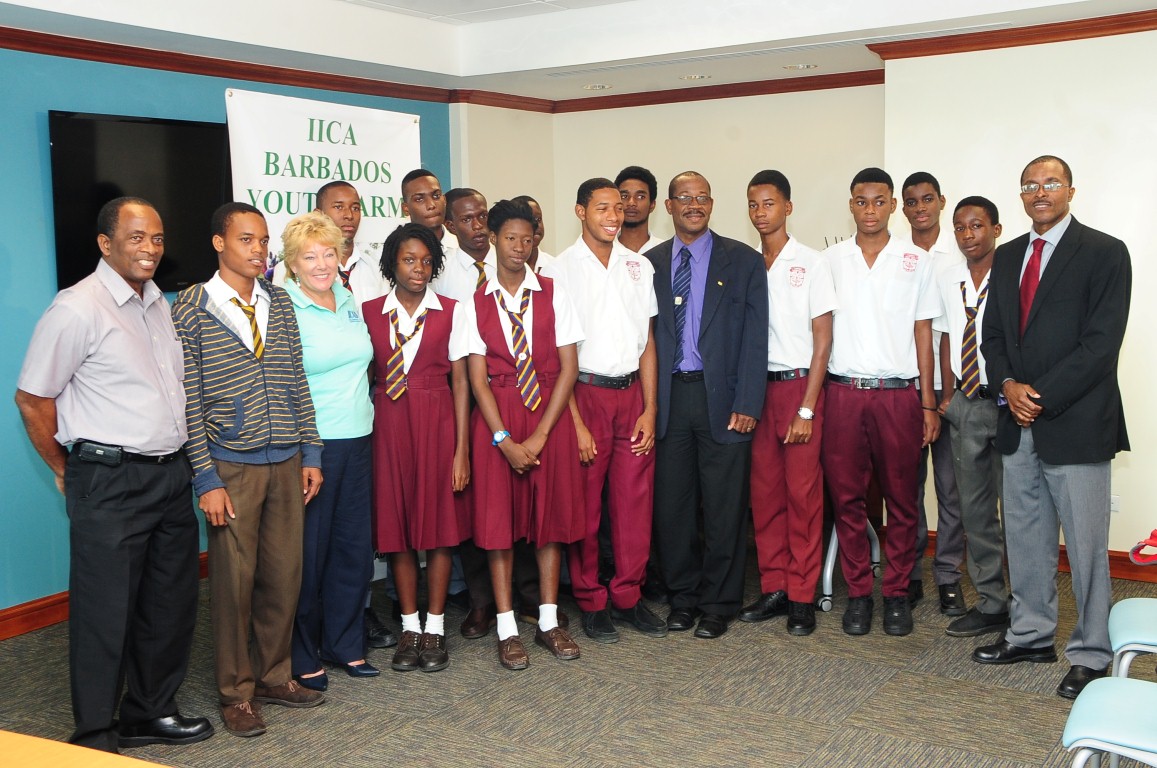There is a world of possibilities available in the agricultural sector and the establishment of a Youth Farm Programme is designed to encourage young people to grasp them.
This was pointed out by Executive Director of the Technical and Vocational Education and Training (TVET) Council, Henderson Eastmond, as he addressed a ceremony to launch the programme, last Friday at Baobab Towers. It is a collaborative effort between the Inter-American Institute for Cooperation on Agriculture (IICA) and the Council.
According to Mr. Eastmond, today’s agricultural sector has changed significantly, and Irrigation Technicians, Post-harvest Specialists, and Integrated Pest Management Specialists, have a key role to play in its continued development.
He added: “Barbados must urgently develop industry professionals in the agricultural sector similar to what obtains in other industries…There is very much a need for educated, trained, certified and competent young persons such as we will have in about 10 weeks’ time to enter the field of agriculture.”
The programme, now in its second year, will see participation from 23 students who have, Mr. Eastmond noted, “spent the last two years learning the theories, principles and skills required to work in agriculture.
“Over the next eight to 10 weeks, you will be further exposed to modern approaches to sustainable farming, livestock forming and ornamental horticulture – both in the classroom and in the field via job attachments.
This opportunity to practise what you have been taught in a real work environment is essential for full learning to take place and competence to develop. I strongly urge you to make the most of it,” he advised.
The Executive Director explained that participants, who will be assessed by trained and certified assessors, will earn certification that proves job competence, which will translate into either a full National Vocational Qualification (NVQ) in Amenity Horticulture Level 1, or units of an NVQ.
He acknowledged that this undertaking was part of TVET’s efforts to address Barbados’ national need vis-a-vis food security and was also in keeping with the Barbados Human Resource Development Strategy 2011-2016. He further noted that the modern agricultural sector called for “use of modern technologies and techniques to maximise efficiencies, reduce costs and deliver competitively priced agricultural products.
“We must move away from the structure of farming in which the farmer is the sole knowledge worker on the farm supported by unskilled labour. The arrangement in which government employs the researchers, agronomists, plant pathologists and entomologists to service the needs of the farmer is inadequate. With over 500 full-time growers, there are too few industry professionals to service the agribusiness industry,” he said.
The Youth Farm Programme participants were selected from a range of secondary schools, including Grantley Adams Secondary, St. George Secondary, Daryll Jordan Secondary (formerly St. Lucy), Deighton Griffith Secondary and the Seventh Day Adventist Secondary.






